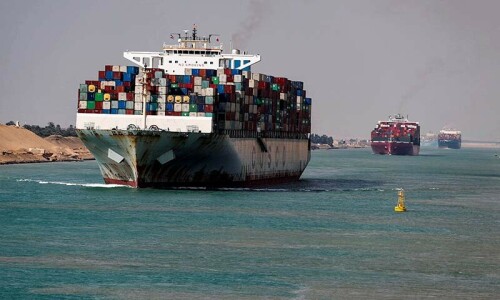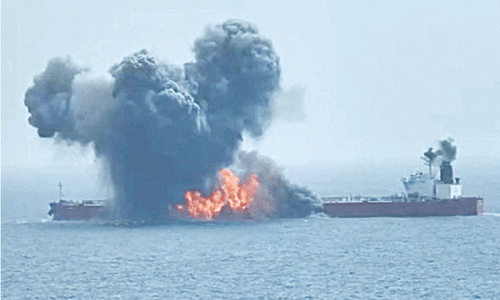DUBAI: Yemen’s government and Houthi rebels have agreed to halt tit-for-tat banking sanctions as they wrestle for control of the country’s financial institutions, the United Nations said on Tuesday.
The Houthis have been fighting a Saudi-led coalition since March 2015, months after they seized the capital Sanaa and most of Yemen’s population centres, forcing the internationally-recognised government south to Aden.
The rebels and the government had committed to a UN-led roadmap in December to end the war, agreeing to work towards “the resumption of an inclusive political process”. But Houthi attacks on Red Sea shipping since November and subsequent US and British retaliation have put peace talks on hold.
On Monday, the two sides informed Hans Grundberg, the UN envoy to Yemen, that they “agreed on several measures to de-escalate”, said a statement from Grundberg’s office, which thanked Saudi Arabia for its “significant role” in brokering the deal.
It came as the warring parties were locked in a fight for control over the country’s banks, with both facing a severe financial crunch. Their latest agreement involves “cancelling all the recent decisions and procedures against banks by both sides and refraining in the future from any similar decisions or procedures”, the envoy’s office said.
In May, the government-controlled central bank banned transactions with six banks in Houthi-held Sanaa for failing to abide by an order to relocate to Aden. As a result, currency exchange offices and banks in government-held areas could no longer work with those financial institutions.
The rebels said the move was an attempt by the US and Saudi Arabia to exert financial pressure.
The Houthis retaliated by banning any dealings with 13 banks in Aden, which means those in rebel-held areas could no longer receive remittances through them or withdraw and deposit funds.
The parties will convene “meetings to discuss all economic issues based on the [UN] roadmap,” said Grundberg’s office.
Published in Dawn, July 24th, 2024













































Dear visitor, the comments section is undergoing an overhaul and will return soon.